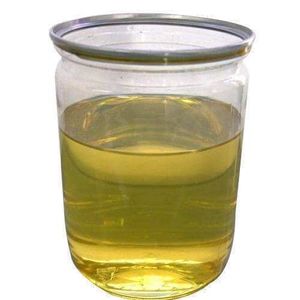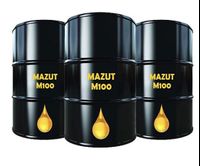LIQUEFIED PETROLEUM GAS (LPG)
- $190.00 / >=100000 metric tons
- 100000 metric tons
- MATIN EXPORT
- PARIS, China
- Mr GUILHEM
| Origin: | Kazakhstan | application: | petroleum gas |
| Package preview: | Package: | mt | |
| Calories (J): | 12.78 | model: | gas |
| Flash point: | Propane: -156°FC. c. ; Butane: -76°FC. c. | brand: | liquefied petroleum gas |
| density: | 0.493 g/cm3 | payment terms: | L/C, T/T |
| Supply capacity: | 2,000,000 metric tons per month | port: | Ports of Houston and Rotterdam, Aktau |
| size: | 3/8" | Packaging Details: | Physical properties and characteristics |
| Blended Crude Oil: | liquefied petroleum gas liquefied natural gas |
3. Vapor pressure
The explosive range of LPG is 1.8% to 9.5% of the gas volume in air. This is much narrower than other common gaseous fuels. This points to the danger of LPG vapors accumulating in low-lying areas in the event of a leak or spill. The autoignition temperature of liquefied petroleum gas is about 410-580°C. C, so it will not spontaneously ignite at room temperature.
Air trapped in the vapor during pumping/filling operations is hazardous to unpurged containers/cylinders. For this reason, the use of air pressure to unload LPG cargoes or tankers is not recommended.
4. to burn
The combustion reaction of LPG increases the volume of the product in addition to generating heat. LPG requires up to 50 times its volume in air to burn completely. Therefore, when LPG is burned in an enclosed space, adequate ventilation must be provided, otherwise, in addition to the formation of carbon dioxide, suffocation will result from depletion of oxygen.
5. Smell
LPG has only a very faint smell, so some odorant needs to be added so that any escaping gas can be easily detected.
For this purpose, ethanethiol is generally used as odorant. Addition should be sufficient to allow 1/5 of the lower flammability limit or odor class 2 (according to IS: 4576) to be detected in the atmosphere.
6. Color
Liquefied petroleum gas is colorless in both liquid and gaseous phases. During the leak, the evaporation of the liquid cools the atmosphere and condenses the water vapor it contains, forming a white mist that makes the escaping LPG visible.
7. Toxicity
Although slightly toxic, liquefied petroleum gas is non-toxic in the gas phase, but may cause suffocation by displacing oxygen at high concentrations. For this reason, the vapor has mild anesthetic properties.
LPG Specifications:- Conforms to IS:4576 Distinctive Features
Chemical Properties:-
|
SL number
|
Element | unit | Specification |
|
1
|
C2 (ethane) | volume% | 0.2 - 1.0 |
|
2
|
C3 (propane) | volume% | 0.2 - 1.0 |
|
3
|
C4 (butane) | volume% | 37-47 |
|
4
|
C5 (pentane) and heavier | volume% | 1.5-2.5 (maximum) |
|
5
|
total olefins | volume% | zero |
|
6
|
Corrosive compound copper tape | not worse than 1 | |
|
7
|
hydrogen sulfide | Production Planning Management | zero |
|
8
|
Sulfur (volatile) | Production Planning Management | zero |
|
9
|
total water content | not any | |
|
10
|
Calorific value (total calorific value) | kcal/kg | 12500 |
|
11
|
moisture | zero |
Physical Properties:-
|
SL number
|
property | data |
|
1
|
chemical formula | Mainly a mixture of C4H10 and C3H8 |
|
2
|
boiling point | 20°C to -27°C |
|
3
|
explosion limit | 1.5-9.0 |
|
4
|
Vapor density (air=1) | 1.8 |
|
5
|
specific gravity (liquid) | 0.53-0.54 |
|
6
|
appearance | colorless |
|
7
|
odor | Odorless** |
|
8
|
physical state | compressed liquid |
|
9
|
Vapor Pressure at 40°C | 1050KPa(Max) |
- No related products


